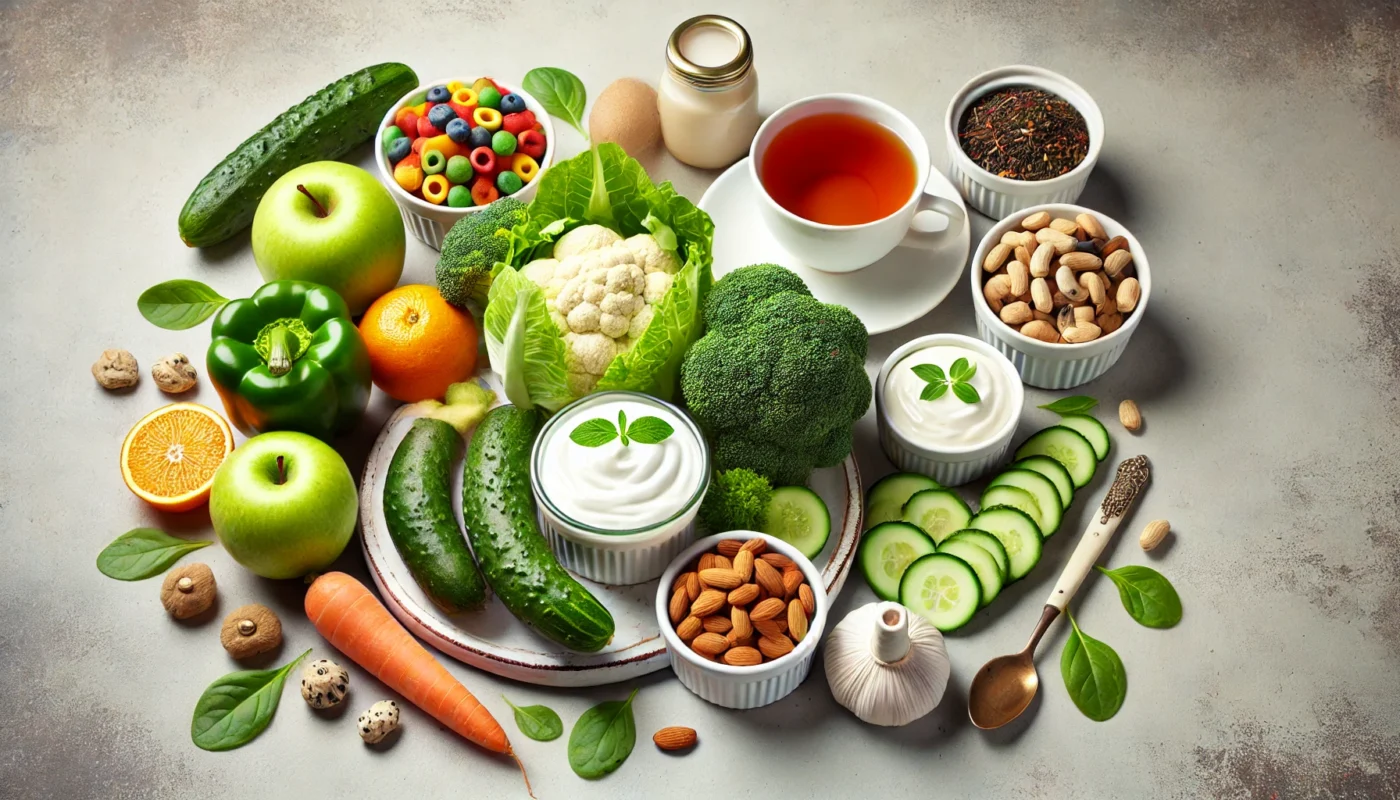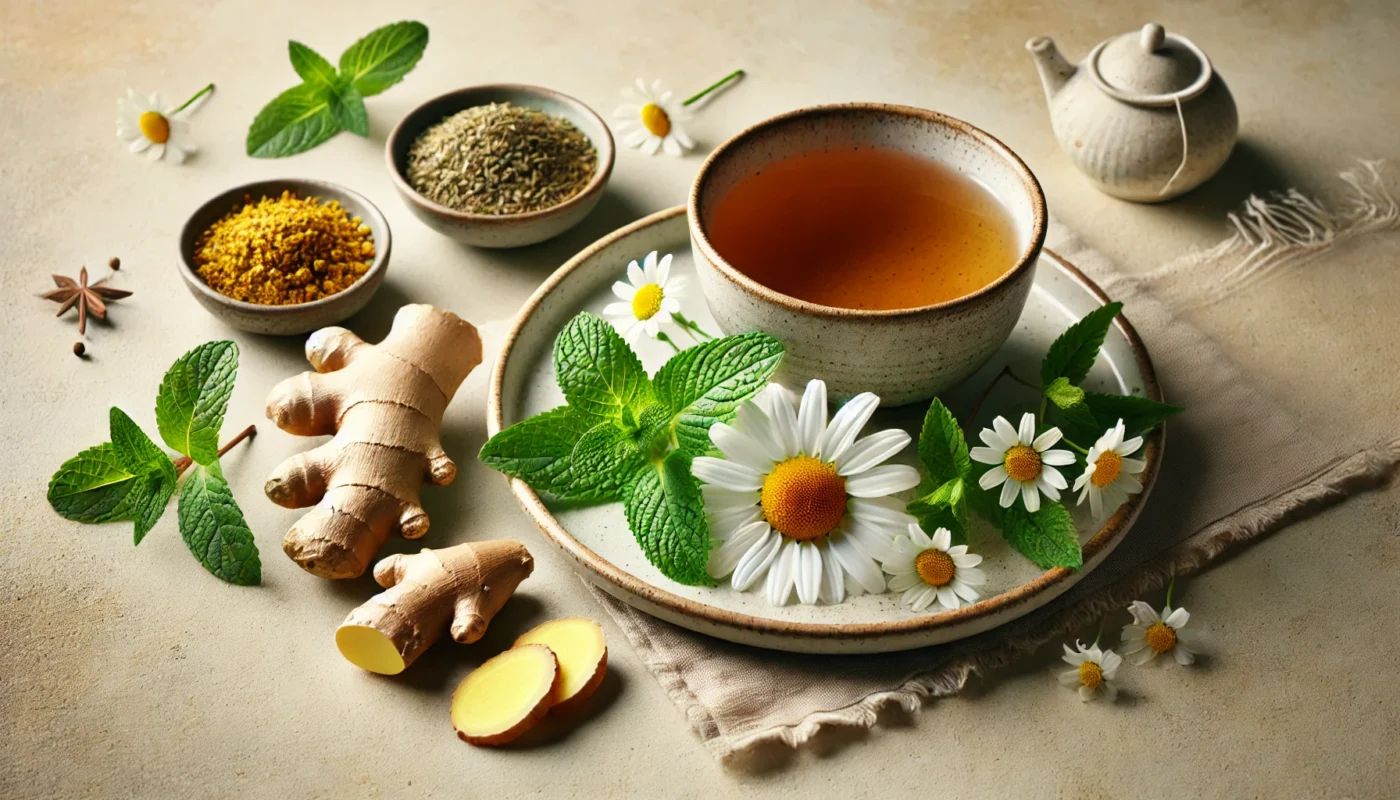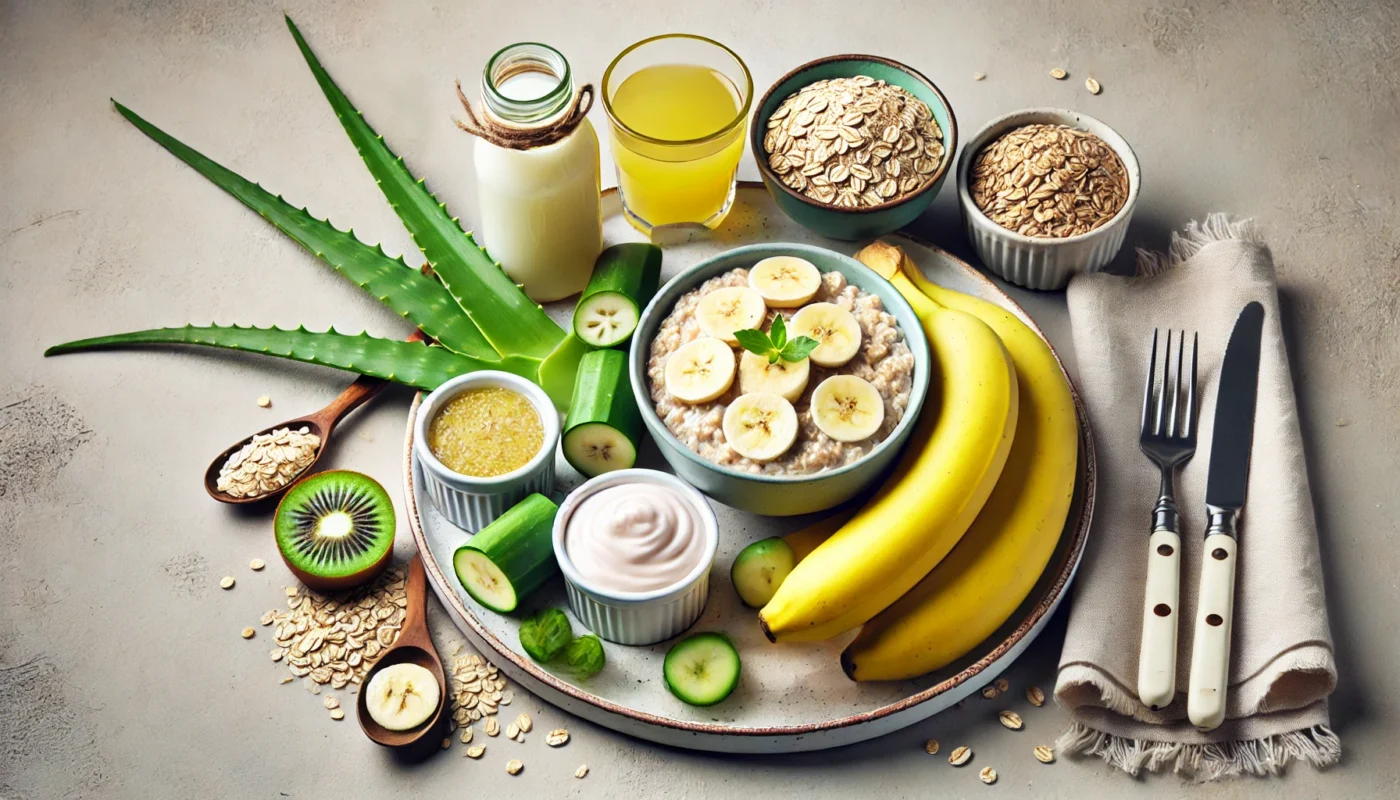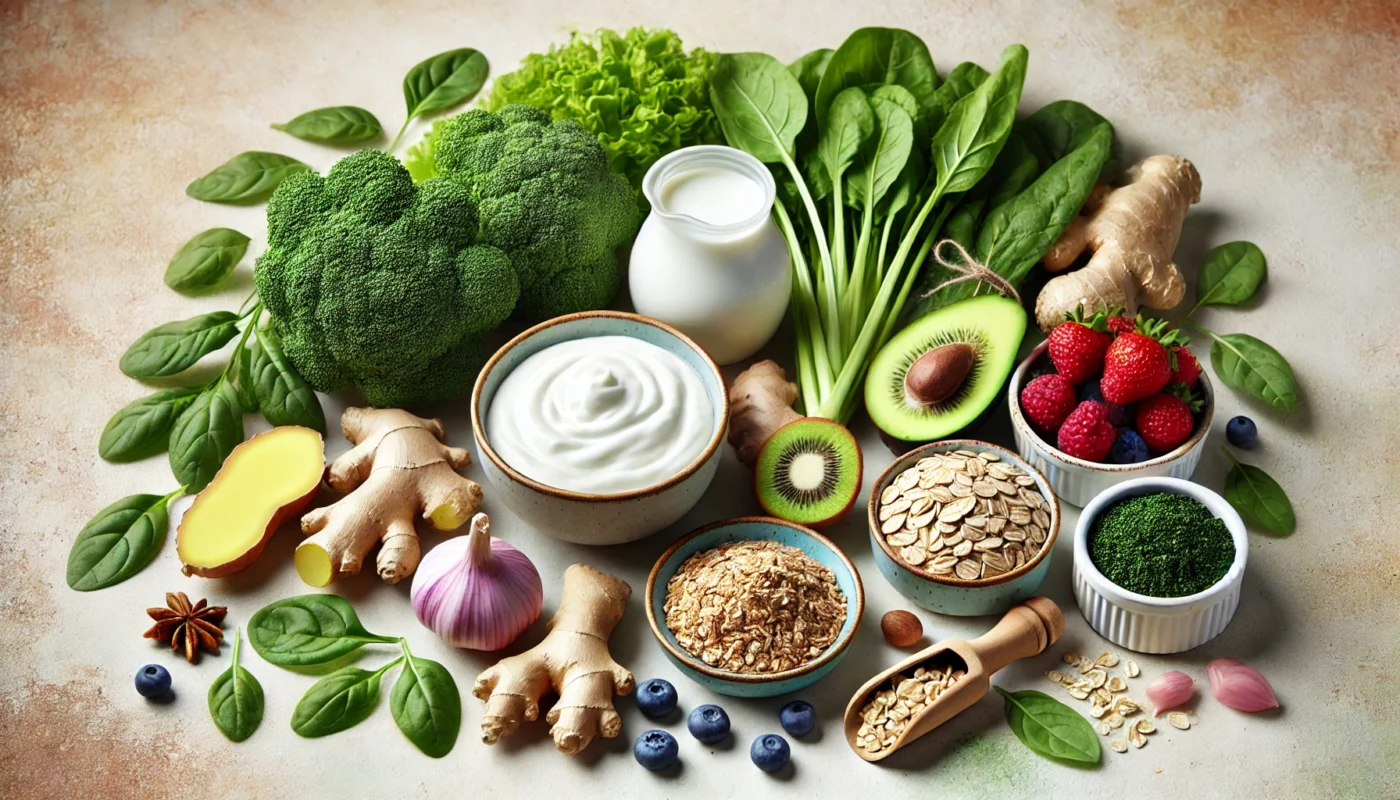Before diving into specific foods, it’s crucial to understand the underlying factors contributing to stomach inflammation. Gastritis can be classified as either acute or chronic. Acute gastritis is a sudden inflammation of the stomach lining, while chronic gastritis involves long-term inflammation that can last for years if untreated. Both forms can result in symptoms like nausea, vomiting, bloating, and abdominal pain.
Types of Gastritis
Understanding the types of gastritis is essential. Acute gastritis often presents suddenly and with more severe symptoms, while chronic gastritis develops slowly over time, often resulting in milder but persistent symptoms. Recognizing which type you have can guide effective treatment.
Chronic gastritis can be more insidious, with symptoms not always easily identified. It can lead to complications if left untreated, such as bleeding or ulcers. Acute gastritis, however, may resolve quickly with appropriate care and lifestyle adjustments.
Symptoms and Diagnosis
Symptoms of gastritis can vary widely among individuals. Common symptoms include upper abdominal pain, nausea, and vomiting, but some people may experience loss of appetite, weight loss, or even black stools.
Diagnosis typically involves a combination of reviewing symptoms, a physical exam, and possibly an endoscopy to assess the stomach lining directly. Blood tests and stool tests might also be used to check for Helicobacter pylori infection, a common cause of gastritis.
Causes and Risk Factors
The causes of stomach inflammation are multifaceted and can include bacterial infections like Helicobacter pylori, excessive alcohol consumption, prolonged use of nonsteroidal anti-inflammatory drugs (NSAIDs), stress, and autoimmune disorders. Identifying and addressing these underlying causes is essential for effective management and recovery.
Lifestyle factors, such as diet, alcohol consumption, and smoking, can significantly impact the development and progression of gastritis. Addressing these can be a critical step in managing the condition. Additionally, certain medical conditions, such as bile reflux disease, can also contribute to gastritis, necessitating a comprehensive medical evaluation.
You May Also Like: Managing Pain Through Dietary Choices

Best Foods for Stomach Inflammation
Dietary modifications play a significant role in managing gastritis. Integrating anti-inflammatory and soothing foods into your diet can help alleviate symptoms and promote healing. Here are some of the best foods to consider:
1. Ginger
Ginger is renowned for its anti-inflammatory and antioxidant properties. It has been used for centuries to treat digestive issues and reduce inflammation. Incorporating fresh ginger into your diet, whether as a tea or added to meals, can help soothe an inflamed stomach.
Ginger can be consumed in various forms, such as fresh, powdered, or as an extract. Its active compounds, such as gingerol, contribute to its medicinal properties. Regular consumption of ginger can help reduce nausea and aid in digestion, making it a versatile addition to your diet.
2. Oatmeal
Oatmeal is a gentle, high-fiber food that can help regulate digestion. Its soothing properties make it an ideal choice for those with an inflamed stomach. Oatmeal’s soluble fiber helps to absorb excess stomach acid, providing relief from gastritis symptoms.
The beta-glucans found in oatmeal are particularly beneficial for gut health, as they help promote a healthy gut microbiota. Starting your day with a warm bowl of oatmeal can not only soothe your stomach but also provide sustained energy throughout the morning.
3. Yogurt
Yogurt, particularly those containing live and active cultures (probiotics), can be beneficial for gut health. Probiotics help restore the natural balance of gut bacteria, which is essential for reducing inflammation and promoting digestive health.
When choosing yogurt, opt for varieties with no added sugars and a high concentration of probiotics. Regular consumption can improve digestive function and help manage symptoms of gastritis. Additionally, yogurt can serve as a base for smoothies or be paired with fresh fruits for a nutritious snack.
4. Green Leafy Vegetables
Vegetables like spinach, kale, and Swiss chard are rich in vitamins, minerals, and antioxidants. They provide essential nutrients that support the healing of the stomach lining. Their high fiber content also aids in digestion and helps prevent constipation, which can exacerbate gastritis symptoms.
Incorporating a variety of green leafy vegetables into meals can ensure a broad spectrum of nutrients. These vegetables can be consumed raw in salads, sautéed as a side dish, or blended into smoothies, making them versatile for any meal. Their natural chlorophyll content also has detoxifying properties, further aiding in digestive health.
5. Aloe Vera Juice
Aloe vera juice is known for its soothing properties. It can help reduce stomach inflammation and promote healing. Drinking a small amount of aloe vera juice before meals can help coat the stomach lining and reduce irritation.
Aloe vera contains compounds such as polysaccharides, which contribute to its healing properties. When choosing aloe vera juice, ensure it’s free from added sugars or artificial ingredients. Consistent use can aid in reducing symptoms and improving overall digestive comfort.
6. Bananas
Bananas are gentle on the stomach and help neutralize stomach acid. They contain a compound called pectin, which can help protect the stomach lining from irritation and aid in digestion.
Rich in potassium, bananas also help balance electrolytes in the body, which is beneficial during bouts of vomiting or diarrhea. Including bananas in your diet can provide both immediate relief and long-term digestive health benefits. Enjoy them as a snack, in smoothies, or sliced over oatmeal for added nutrition.

Foods to Avoid
While certain foods can help soothe stomach inflammation, others can exacerbate the condition. To effectively manage gastritis, it’s essential to avoid:
1. Spicy Foods
Spicy foods can irritate the stomach lining and worsen inflammation. It’s best to avoid dishes with excessive chili, pepper, or other spicy ingredients.
Limiting spicy foods can prevent additional discomfort and inflammation in the stomach lining. For those who enjoy flavorful foods, exploring mild herbs and spices as alternatives can still provide tasty meals without the irritation.
2. Caffeine and Alcohol
Caffeinated beverages and alcohol can increase stomach acid production and irritate the stomach lining. Reducing or eliminating these from your diet can help manage gastritis symptoms.
Switching to herbal teas or decaffeinated beverages can provide a soothing alternative to caffeinated drinks. Similarly, opting for non-alcoholic beverages can prevent irritation and support the healing process.
3. Fried and Fatty Foods
Fried and high-fat foods can slow down the digestive process, leading to increased stomach acid production and inflammation. Opt for healthier cooking methods like steaming, baking, or grilling.
Choosing lean proteins and incorporating more plant-based meals can reduce fat intake and support digestive health. Experimenting with different cooking techniques can offer delicious and healthy alternatives to fried foods.
Holistic Approaches to Stomach Inflammation
In addition to dietary changes, several holistic approaches can complement your efforts in managing stomach inflammation:
1. Mindfulness and Stress Management
Stress is a significant contributor to gastritis. Practicing mindfulness, yoga, or meditation can help reduce stress levels and promote overall digestive health.
Incorporating daily mindfulness practices can significantly reduce stress-related symptoms. Techniques such as deep breathing exercises or guided meditations can be easily integrated into your routine, offering lasting benefits for both mental and physical health.
2. Herbal Remedies
Herbs like chamomile and peppermint have been traditionally used to soothe digestive issues. These can be consumed as teas to help reduce stomach inflammation and discomfort.
These herbal remedies not only offer relief but also provide a calming effect on the digestive system. Regular consumption, especially in the evening, can aid in relaxation and promote restful sleep, further supporting healing.
3. Regular Exercise
Engaging in regular physical activity can improve digestion and reduce stress, both of which are beneficial for managing stomach inflammation. Aim for moderate exercise, such as walking or swimming, for optimal benefits.
Exercise stimulates the digestive tract and enhances circulation, promoting faster healing and reduction of inflammation. Tailoring an exercise routine to your preferences ensures consistency and maximizes health benefits.

Conclusion
Managing stomach inflammation involves a comprehensive approach that includes dietary modifications, stress management, and lifestyle changes. By incorporating soothing and anti-inflammatory foods like ginger, oatmeal, and yogurt into your diet, you can alleviate symptoms and promote healing. Additionally, avoiding irritants like spicy foods and alcohol is crucial for managing gastritis effectively.
Taking a holistic approach to your health and wellbeing can provide long-lasting relief and improve your overall quality of life. Remember, it’s essential to consult with a healthcare professional if you experience persistent symptoms or suspect an underlying condition.
By understanding the causes and incorporating these strategies, you’ll be well on your way to soothing stomach inflammation and enhancing your digestive health.
Further Reading:
9 natural remedies for gastritis
What To Eat (And Avoid) if You Have Gastritis
stomach inflammation, gastritis, anti-inflammatory foods, digestive health, dietary modifications, holistic health, gut health, natural remedies, healthy eating, stress management
Important Note: The information contained in this article is for general informational purposes only, and should not be construed as health or medical advice, nor is it intended to diagnose, prevent, treat, or cure any disease or health condition. Before embarking on any diet, fitness regimen, or program of nutritional supplementation, it is advisable to consult your healthcare professional in order to determine its safety and probable efficacy in terms of your individual state of health.
Regarding Nutritional Supplements Or Other Non-Prescription Health Products: If any nutritional supplements or other non-prescription health products are mentioned in the foregoing article, any claims or statements made about them have not been evaluated by the U.S. Food and Drug Administration, and such nutritional supplements or other health products are not intended to diagnose, treat, cure, or prevent any disease.

